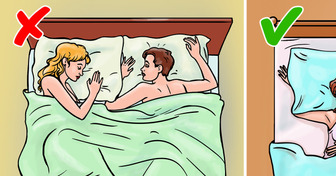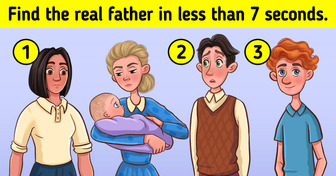An Artist Shares Her Honest Illustrations to Show What Happens in Real Relationships
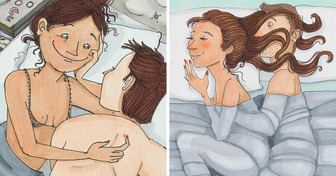

No one wants to go to bed hungry, but is it bad to eat before bed? In our article, we’ll tell you about the pros and cons of chowing down at bedtime.
Normally, the acid produced when digesting the food you eat is contained in the stomach. Gravity is of great help here, as it forces the fluid stream downward. When lying down in a bed, however, the acid moves through the stomach and might come into contact with the sensitive parts of the digestive system. That’s why lying in bed with your stomach full can lead to heartburn, a painful burning sensation in your chest or throat.
If you ate a large meal immediately before going to bed late at night, the full digestion process continues while you’re asleep. The reason for bad sleep can be different for everyone. It could be that your mind is more active during the metabolism stage, spending energy to digest the food you ate before bed, causing you to sleep less deeply. Another reason could be that you lie awake due to symptoms of heartburn. It also depends on what type of food you had and how much of it you ate.
Remember the time you were tossing and turning in bed because of bad dreams? It can also be because of the food you happened to eat at night. As was mentioned before, your metabolism being triggered by your late-night eating causes your brain to become more active. You then enter a so-called rapid eye movement (REM) sleep, which is the time when most dreaming takes place. So if you notice that you’re having really vivid or maybe even creepy dreams at night, try to lay off eating so close to bedtime.
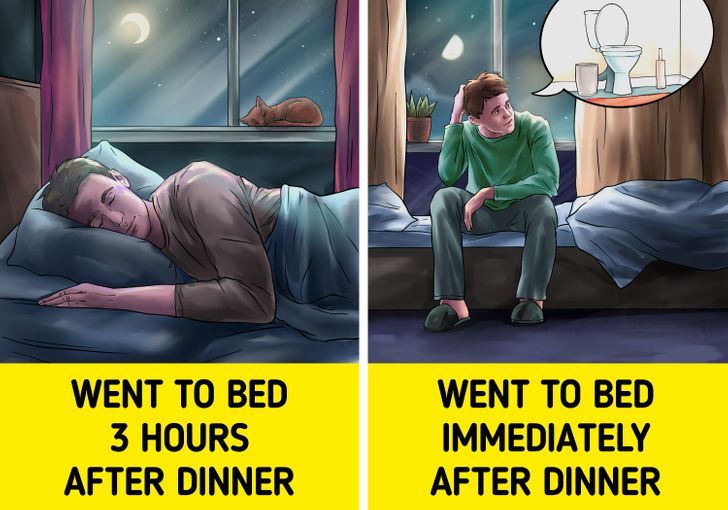
Some people experience an increased need to urinate at night, which is known as nocturia. This can be related to the amount of caffeine in the food you ate late in the day. This means the food you eat could be a diuretic, or in other words, it makes you have to pee more. It can, of course, be found in coffee. But not many people know that it’s also present in other foods we might be eating before bed, like tea, baked desserts containing chocolate, and some medications.
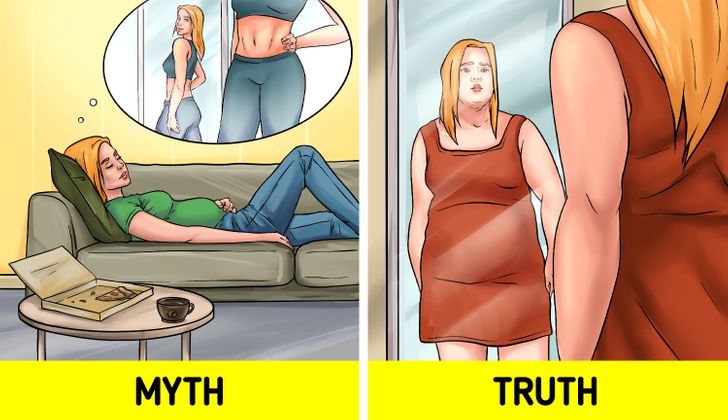
When you eat late and not enough time passes before going to bed, you don’t give the body enough time to burn off calories from the meal you were eating. So even though you might feel very sleepy after a big meal and crashing on the couch for a small nap is all you want to do, this decision may be bad for your figure. It’s better to try to stop eating before bed or stay awake for some time after eating dinner if you don’t want any unwanted (and unnecessary) pounds to creep in secretly.
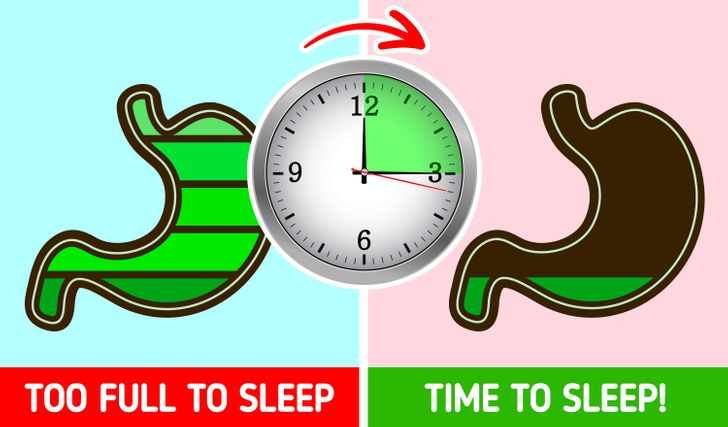
To prevent problems like heartburn or sleepless nights from occurring, it’s better to separate late-night eating from going to bed right after. You want everything you ate throughout the day to move from your stomach into the small intestine before you nap or go to bed for the night. Nutritionists say that this happens in about 3 hours. It’s just a guideline, but it’s definitely worth keeping in mind.
Have you ever experienced these effects of post-meal napping? What do you usually do after eating? Do you like to rest or do you prefer to engage in physical activity?



